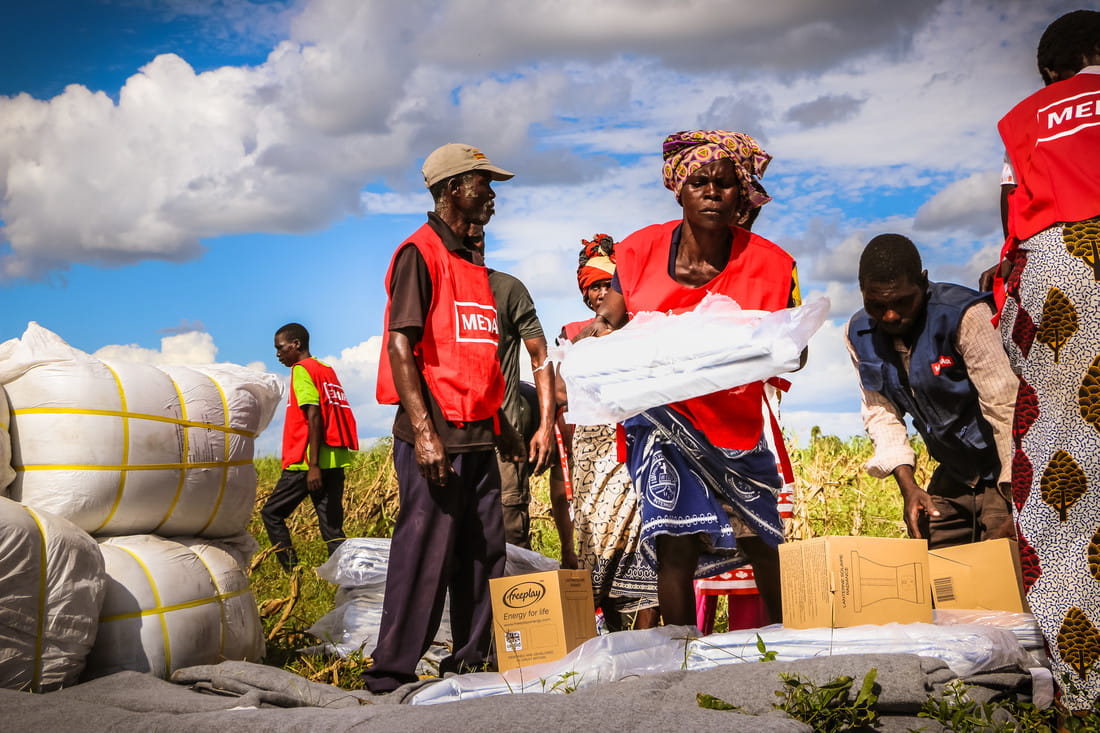- Home
- About The Myers-Briggs Company
- News
- Help for humanitarian aid workers
Help for humanitarian aid workers
International aid organization uses MBTI donation for team development
When an L&D practitioner volunteered to run a team development event for Medair, she asked if The Myers-Briggs Company could contribute. We donated MBTI Complete assessments and materials to help her support Medair’s incredible work around the world. Here’s what happened
Formed in 1989, Medair is an international non-governmental organization (NGO) which provides humanitarian relief and recovery services to areas struck by Category 3 emergencies. It provides support in places like Syria, Afghanistan, Iraq and South Sudan, working with issues ranging from refugees and conflict zones to starvation, disease, and natural disasters.

Supporting relief workers from Medair HQ
From their headquarters in Switzerland, Medair’s IT team provides centralized support for the relief teams out in the field. Although mostly based in the HQ offices, some IT team members do go out into the field to provide local support to Medair staff.
“The team tends to work in silos,” said IT Director Heidi Cockram, “and I wanted to find a way to help everyone work together more closely. I want everyone in my team to feel equipped to take responsibility for our future direction, which will include increased regional IT presence in the areas we support.”
To help her do this, Heidi contacted Alina Sandell, a friend and L&D practitioner based in the UK. Alina immediately agreed to get involved and volunteered to deliver a two-day event, covering strategy on day one and team development on day two.
Making a difference to team performance
All team members completed their MBTI assessments online through MBTI Complete a week before the event. They knew their MBTI types and were familiar with the MBTI framework, but still went through a refresher at the start of the session.“I think it's important, from a facilitator point of view, to do this because you can bring it to life with personal stories,” said Alina. “You can make it human instead of it looking like an abstract, academic thing.”
The Medair IT team has a real mix of people. They represent nine different nationalities, and the team is relatively young – the longest serving member has been there for three years, and the newest member has been there three months. Self-awareness and knowing what each person can bring to the team were key areas for exploration.
One participant expressed relief knowing that there was a valid explanation for some personal tension, saying, “My line manager, I now know, is the exact opposite of my type. Just to have that awareness has improved our relationship already, less than two weeks after the event.”
“One of the challenges Heidi talked about before we went there was that she asks people for their input, their opinion, their thoughts,” explained Alina. "But the Introversion types need marinating time. Now, with this framework, they have permission to think about the question and get back with their thoughts a little later. They know that it’s OK to do this.”
One exercise saw the team working in small groups to ask questions they’d been given. It got a great reaction. “Heidi had never heard them talk as much!” Alina added. “It's like it gave people permission to talk and to confirm where they add value – for example, ‘I’m an NF in an ST team. But I bring certain qualities, and I am valued for that.’ It’s a lovely thing to see a group of people realize they have the language to recognize the value they bring.”
Team members each received an Introduction to MBTI Type book, and Heidi has already noticed that that they’ve been using the material.
“People are using the book – they’re on their desks and I’ve seen people reminding themselves of what other personality types need,” she said. “They’re using the right words and the common language is making it work well. Most of the team are Introverts. Two of us are Extraverts. We've learned how to flex preferences when necessary, and the information on stress triggers is very useful for future development – our line of work does take people into stressful situations. It’s part of the job.”
Crossing cultural boundaries with self-awareness
Heidi had more to add about the wider implications of self-awareness and understanding others. “We found that MBTI is useful for the immediate team and for overseas work and travels. Out in the field, you work with people. You might not know the language and you certainly won’t know the culture,” she said, “and this is where MBTI awareness is useful. It at least introduces the concept that people are different and will work differently, and this is especially likely in different cultures. It’s important to have the awareness that people work differently.”
Medair operates in difficult conditions which many of us cannot imagine. We're delighted to have had the opportunity to support them and their work.
See also
• Supporting Aiducation
• Celebrating one year as a B Corp